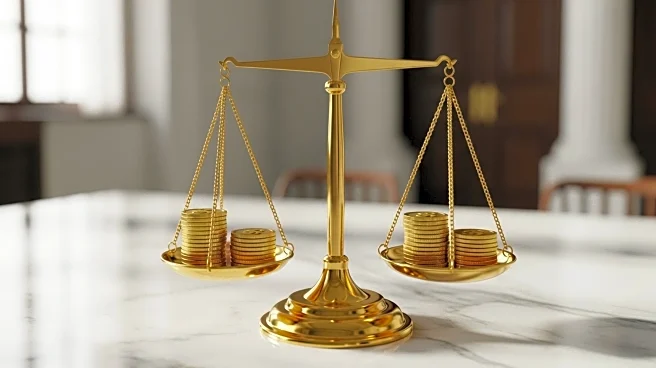What's Happening?
Treasury Secretary Scott Bessent expressed confidence that President Trump's tariff plan will be upheld by the Supreme Court. However, he warned that if the court rules against the tariffs, the Treasury would be obligated to issue refunds for approximately half of the tariffs collected, which could be detrimental to the Treasury's finances. The Trump administration has requested an expedited ruling from the Supreme Court to overturn an appeals court decision that deemed most of the tariffs on imports illegal. Bessent highlighted the potential disruption that could occur if the ruling is delayed until June 2026, by which time $750 billion to $1 trillion in tariffs might have been collected.
Why It's Important?
The outcome of the Supreme Court's decision on the legality of President Trump's tariffs could have significant financial implications for the U.S. Treasury and the broader economy. If the tariffs are voided, the Treasury would face the challenge of refunding a substantial amount of money, potentially impacting government revenue and fiscal policy. This situation underscores the tension between trade policy and legal scrutiny, with potential consequences for international trade relations and domestic economic stability. Businesses and industries affected by the tariffs are closely monitoring the situation, as the decision could alter competitive dynamics and market conditions.
What's Next?
The Supreme Court's decision timeline remains uncertain, but the Trump administration's request for an expedited ruling suggests urgency in resolving the matter. Stakeholders, including businesses and trade partners, are likely to react based on the court's decision, which could lead to adjustments in trade strategies and economic forecasts. Political leaders and policymakers may also engage in discussions to address the potential financial and economic impacts of the ruling, considering alternative measures to mitigate any negative consequences.










